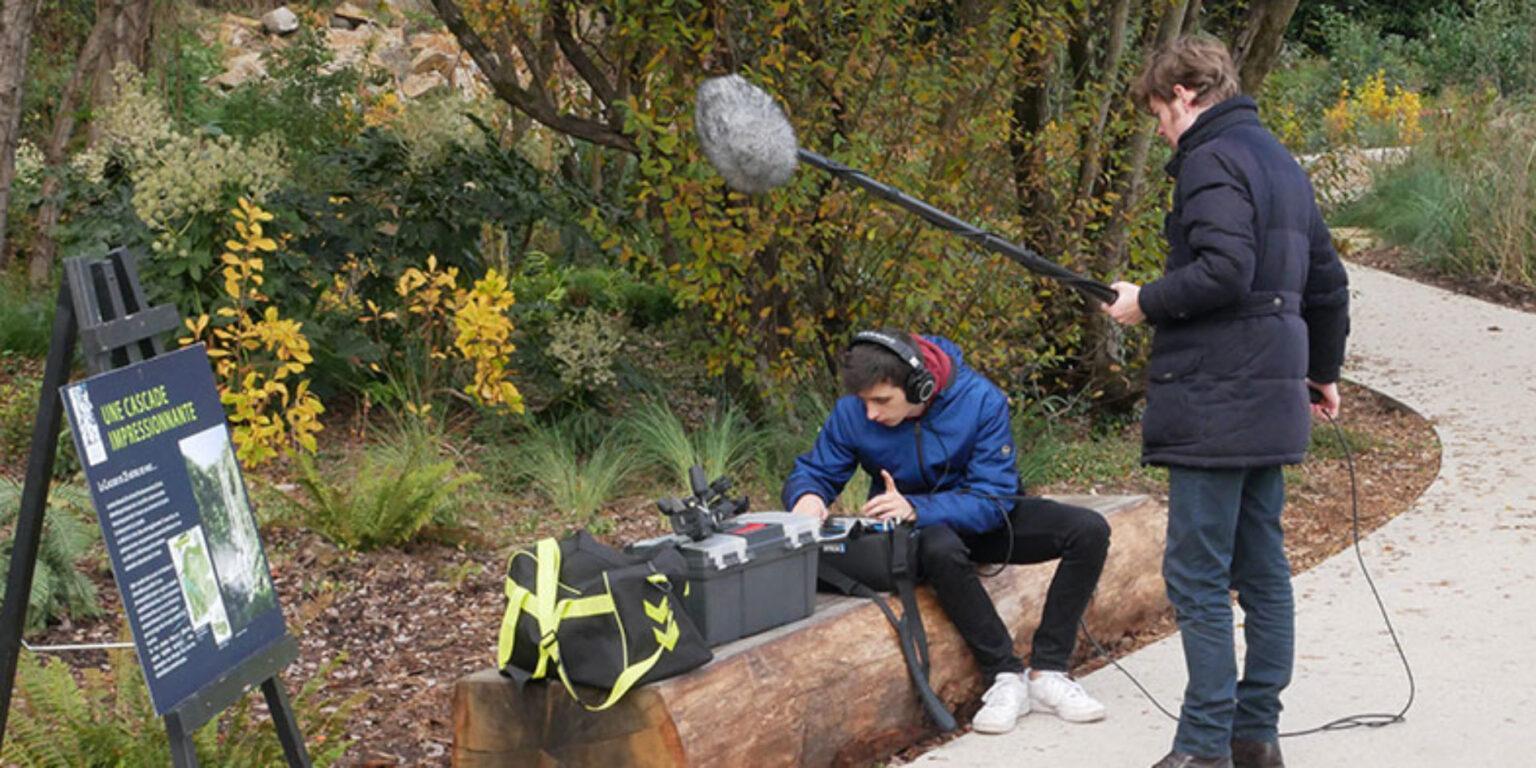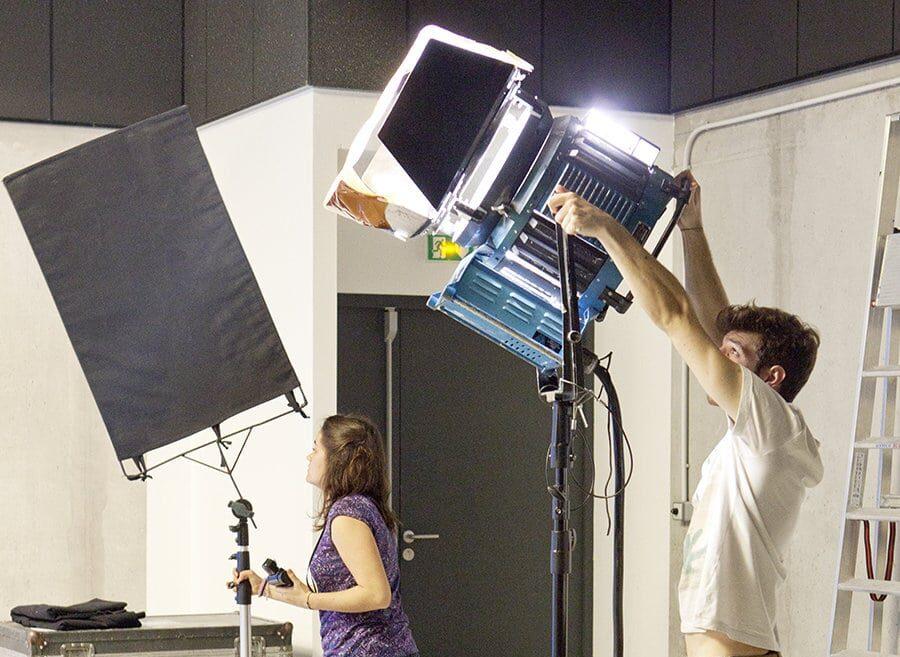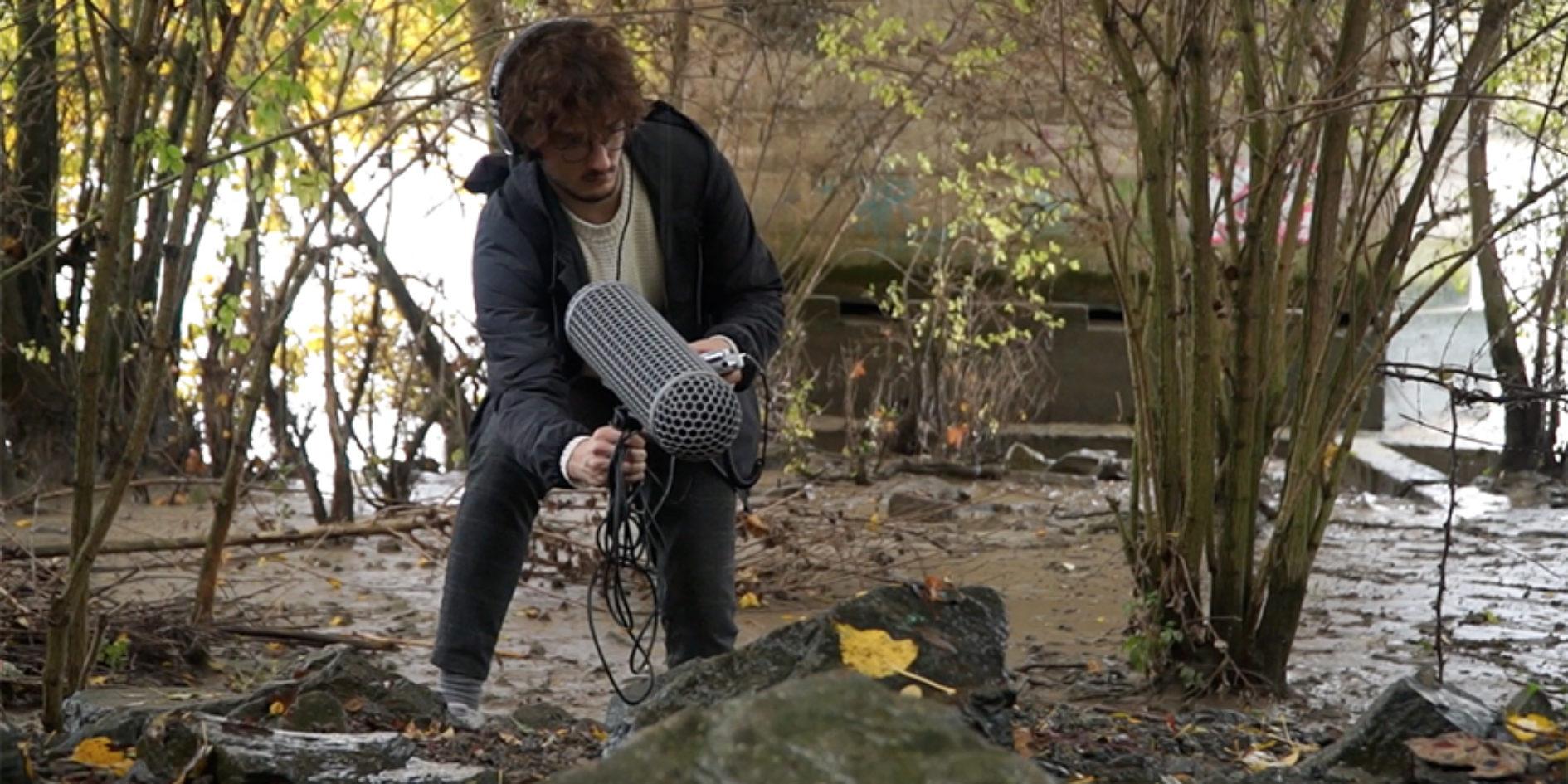Boom operator

The boom operator is in charge of the sound recording during the shooting.
This job in the audiovisual and film industry is essential to the soundtrack of any project. What are his / her skills, training and professional opportunities? Our answers.
The boom-operator’s role and missions
The boom operator can have different names: boom operator, sound assistant…
Working closely with the actors and on-screen contributors, he / she is responsible for the sound recording during the shooting. As a experienced technician, this audiovisual professional moves a boom equipped with a microphone over the actors throughout the dialogue.
Of course, he / she must be careful not to appear on screen or form a visible shadow on the image. His / her mission requires very special physical and technical qualities.
In most cases, the boom operator assists the sound engineer in the various sound operations of an audiovisual or a sound project.
Préparation of audio equipment
First of all, the boom operator is in charge of the preparation of the various sound equipment and their operation. This includes microphones and booms, editing and mixing desks, tape recorders, the control room desk, etc. The boom operator is responsible for the preparation and operation of the various sound equipment.
Setting up the sound recording equipment
Then, he / she makes all the adjustments expected by the sound engineer and/or the chief operator. He / she may be required to install the microphones as well as the speakers installation and wiring.
The boom operator can therefore work in all areas requiring sound recording: cinema, television, radio, music… He is responsible for connecting and operating the equipment as well as adjusting the sound recording devices.
Depending on the project, he / she can also accompany a cameraman and a journalist in outdoor reports. As a sound technician, the boom operator must then ensure the quality of the audio and take care of the various sound recordings.
Diplomas and training
Various training courses allow you to practice the profession of boom operator. If there is no specific diploma for this profession, it is still necessary to train through internships and various courses on the different professions in the film industry.
Developing personal experience with audio professionals is as essential as training to acquire all the essential knowledge and skills related to this profession. On the other hand, professional integration can be encouraged by a good background in different fields: electronics, electricity, acoustics…
The job of sound assistant is technical, physical and precise at the same time.
To another extent, several diplomas, including the RNCP Level 6 Audiovisual Director-Creator title, also facilitate insertion into the television or film industry as a boom operator.
These training courses provide knowledge and skills useful for the exercise of various audiovisual professions, including the profession of sound assistant. Internships provide students with the opportunity to specialize in the profession that attracts them.
Professional experiences and personal projects are a plus to enter the job market as a boom operator, and to quickly integrate the film and television industry.
Skills and required qualities
His / her skills
The work of a boom operator requires specialized knowledge of audio equipment (microphones, mixing tables, etc.) and significant acoustic capabilities.
As a sound technician, his missions are technical and require a high degree of precision in their execution. The sound assistant must be methodical and meticulous in the preparation of audio equipment and in its use. His acoustic and technical abilities are important, as is his musical sensitivity.
The work requires a high degree of physical ability to hold a boom above the actors during a shooting. A great resistance to effort is expected from the boom operator in the performance of his duties.
Essential qualities
Since he works in collaboration with other audiovisual professionals, he must have a strong taste for teamwork and a great sense of listening. Rigor is required in a profession where there are many collaborations and instructions.
In cinema, the boom operator’s task must be of great precision. The sound recorder must anticipate the actors’ movements and make sure never to enter the camera’s field. He must also be careful not to interfere with the actors’ performance.
Here, concentration and precision are essential qualities. In addition, his job often involves important unforeseen situations. The boom operator must be flexible and adaptable.
Careers and professional opportunities
Boom operators are required to work in a wide variety of structures and contexts. In particular, they work on film sets, theaters, recording studios…
They may also work in auditoriums, television, radio, mobile studios and sound trucks. The opportunities for this trade are therefore as numerous as they are varied, and all productions employ boom operators.
However, this profession often involves difficult working conditions: irregular hours, night work, weekend recordings, outdoor work, etc.
As a sound specialist, the boom operator and sound assistant may evolve during his or her career towards the positions of sound engineer or sound operator. He can also take over the control room after several years of experience. Finally, this sound professional can also move towards related jobs such as mixer, sound editor or sound engineer.
Salary expectations
As an occasional worker, the boom operator is not paid a fixed salary, but according to the missions he carries out.
Other criteria also come into account, such as the structure for which he / she works, the activity, the working hours, the nature of the mission, etc. For all these reasons, his salary can vary considerably and no fair range can be established.
Here, reputation, projects and experiences can also influence salary claims. A greater number of shoots and audiovisual productions may lead to better compensation, which can grow over the course of a sound assistant’s career.





